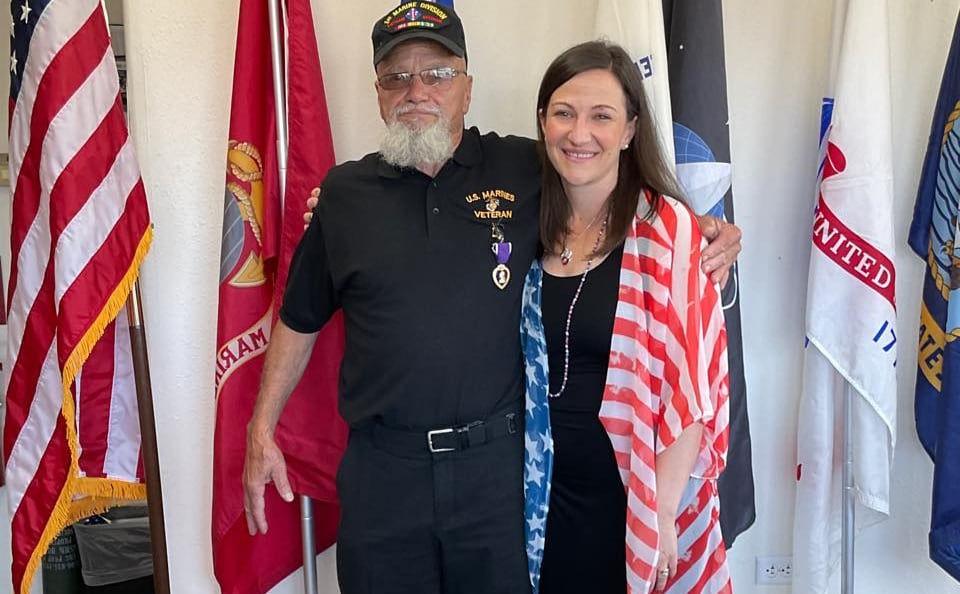A Marine veteran on the receiving end of friendly artillery fire in Vietnam finally received a Purple Heart for wounds sustained during that firefight – 52 years later.
The commander of the Military Order of the Purple Heart for Snake River Plain, Idaho, Chapter 829 awarded Bill “Rocket Man” Klobas, 71, his medal on June 18 at the Vet Center in Pocatello, Idaho.
“I would like to if I could, dedicate this to former veterans that I was with in Vietnam,” Klobas, choking back tears, said at the ceremony, footage shows.
RELATED
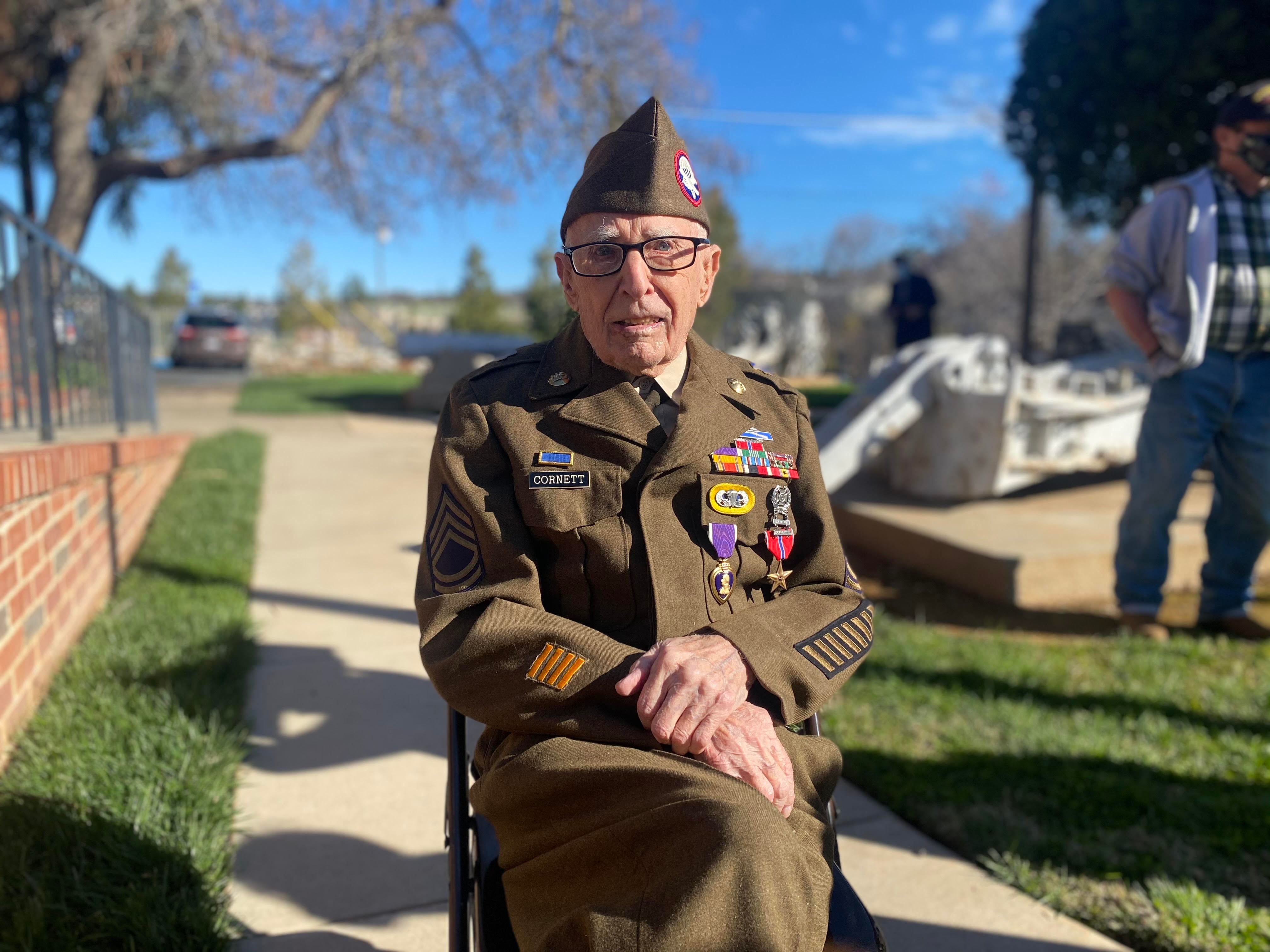
After more than half a century, the award didn’t come easily. He was denied twice until the Purple Heart was approved.
And that didn’t happen until the relentless daughter of this combat veteran gathered eyewitness accounts, scoured records and hounded top Marine officers on her father’s behalf.
“Dad struggled with accepting this long-overdue award,” Casey Byington, Klobas’ daughter, told Marine Corps Times in an email Tuesday. “It’s been difficult for it to sink in and for him to accept it.”
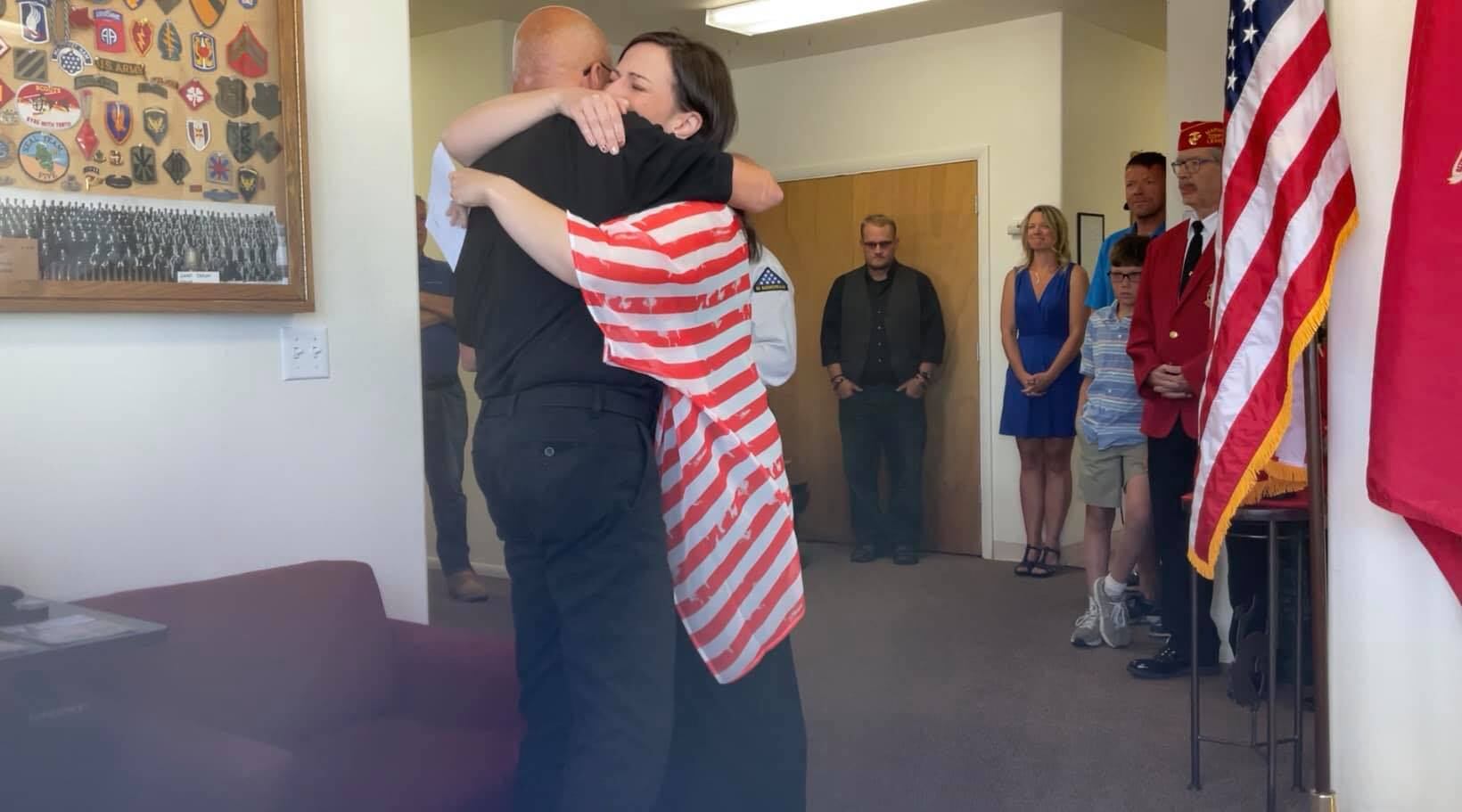
Byington said her father was shunned when he came home from the war, enough that he didn’t talk about his service and had to make up stories to fill in gaps of his time in the military when applying for jobs.
For the daughter who conducted her own battle of paperwork and persistence, seeing her father get this long-overdue award was worth the effort.
“What did it mean to me: Absolutely everything,” Byington told Marine Corps Times.
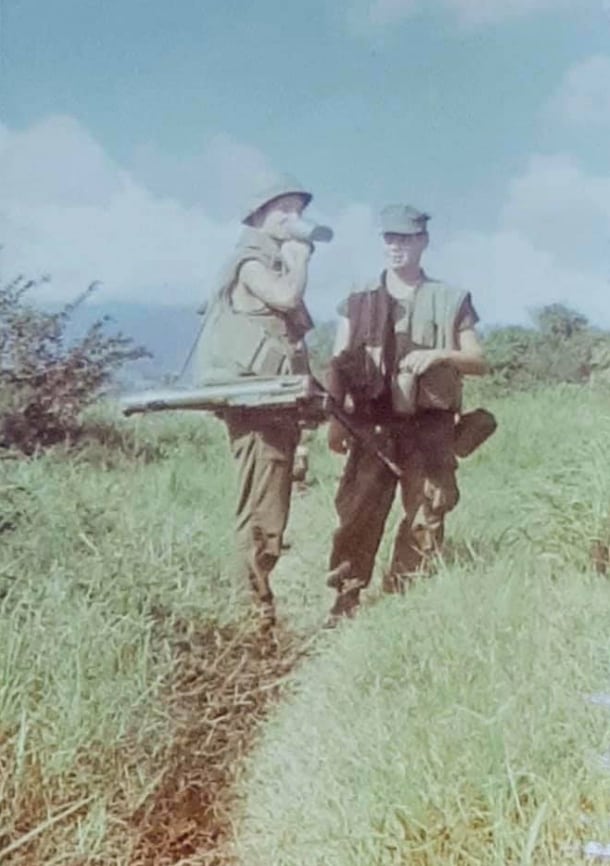
Actions that led to the medal happened when Lance Cpl. Klobas and his fellow Marines were on an April 26, 1969, patrol during Operation Oklahoma Hills southwest of Da Nang, Vietnam.
The operation included Klobas’ unit, India Company, 3rd Battalion, 7th Marine Regiment, 1st Marine Division and Army of the Republic of Vietnam’s 51st Regiment, according to the veteran. It was a clear and search operation that ran from late March 1969 to late May 1969.
Troops were there to clear enemy units from hidden camps and routes along the valleys and hills of the region.
Klobas had been in country since 1968, about 10 months into his tour of duty, before he was injured, according to an article in the Idaho State Journal.
He and his fellow Marines were scattered in an open field and had gotten pinned down by sniper fire.
“The must have followed us out of the jungle,” Klobas told Disabled American Veterans Magazine. “Once they started firing, I remember seeing and getting behind a large boulder or rock.”
They called in an artillery strike from 155mm howitzers on a nearby hill.
“We had called in artillery close to us before so I wasn’t surprised when I heard it whistling over my head,” Klobas told DAV Magazine. “The first one landed about 500 yards in front of me. I thought I was going to live at that point. When I heard the next round, I knew it was going to hit me. I thought I was dead. I just curled up.”
The blast caused what is now known as traumatic brain injury. Klobas suffered from undiagnosed effects of the injury and associated post traumatic stress disorder symptoms afterward, his daughter said.
Klobas qualified for the Purple Heart for some time, but without the award citation, his family had to prove that he was where he said he served and what had happened to him.
At first, the claim was denied because, his daughter Casey Byington said, she couldn’t prove he’d been treated by a medical officer for his injuries.
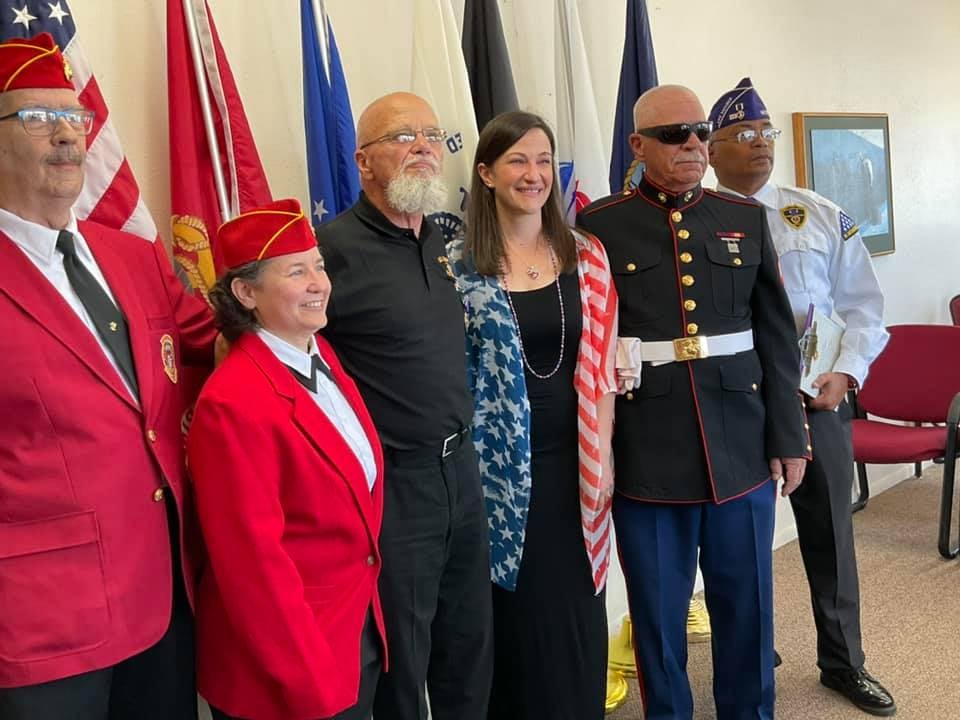
She was told that her dad’s military records that might have linked medical treatment to the friendly fire incident had been purged when the ship he’d been treated on, the hospital ship Sanctuary, was decommissioned in 1975, according to the State Journal article.
Without the medical records, she would need two eyewitness accounts as part of the documentation.
While watching a YouTube.com video about Operation Oklahoma Hill, Klobas spotted a comment that happened to be from a fellow Marine vet from his tour, Al Moreno.
In the comment, Moreno had asked for fellow members of India Company, 3rd Battalion, 7th Marine Regiment to contact him to share memories, the State Journal reported.
“When my dad called Al the first thing he did was drop the phone,” Byington told the State Journal. “Then he said, ‘rocket man,’ which was my dad’s nickname because he carried all the LAW rockets, ‘Is that you rocket man?’”
Moreno clearly remembered what had happened that day. He was one of the first Marines to reached the wounded Klobas.
“Klobas was hurled through the air like a rag doll with his head, arms and legs flailing in opposite directions all at once,” Moreno told DAV Magazine. “When we got to him our corpsman was feverishly working on him. He was hemorrhaging blood from his nose, mouth and ears. His eyes were rolled back and you could only see the whites of his eyes. Nobody thought he was going to make it.”
Moreno and others, including radio operator Richard “Ski” Czerniejewski, dragged Klobas to cover and called in air support, assuming he was dead.
With that connection and others, Byington was able to get the eyewitness accounts of her father’s injury and medevac that later led to the award.
Beyond the award, the reconnection with fellow vets added another benefit for Klobas.
“Getting in touch with Al and Ski was probably the best thing to happen to me in my life, especially with my memory,” Klobas told DAV Magazine. “I couldn’t do memorials or events until last year. I felt pride for the first time in 50 years! I would give my life today for the Marine Corps. They were and are my friends.”
Todd South has written about crime, courts, government and the military for multiple publications since 2004 and was named a 2014 Pulitzer finalist for a co-written project on witness intimidation. Todd is a Marine veteran of the Iraq War.
